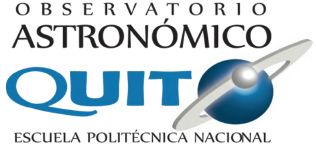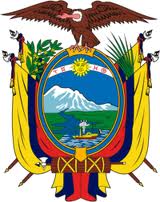  |
Third UN/Ecuador Workshop on ISWI
|
 |
09:00 Registration
10:00 Opening Ceremony and Welcome Remarks
(Ministry of Foreign Affairs of Ecuador)
- Ministry of Ecuador on behalf of the President of the Republic of Ecuador, Ecuador
- Secretary of Sciences and Technology of Ecuador, Ecuador
- Mr. Alfonso ESPINOSA, Rector of National Polytechnic School of Ecuador, Ec
- Ms. Sharafat GADIMOVA, United Nations Office for Outer Space Affairs
- Mr. Joseph DAVILA, United States of America
- Mr. Hajime HAYAKAWA, Japan
- Mr Ericson Lopez, Chair of Local Organizing Commitee and Director of the Quito Astronomical Observatory
11:00 - 11:20 Coffee Break
11:20 Keynote Addresses
11:20 A pathway idea for model building, ![]() Mr Arak MATAI, Centre for Mathematical Science, India
Mr Arak MATAI, Centre for Mathematical Science, India
11:50 Highlights of the 2012 workshop on societal impacts of Space Weather
Ms Mangala SHARMA United States of America
12:20 Solar radio bursts and Space Weather ![]()
![]()
Mr. Natchimuthuk GOPALSWAMY NASA, United States of America
12:50 Masatoshi Kitamura (1926-2012) and his contributions to the United Nations Activities, ![]() Mr. Takashi SAKURAI et al ICSWSE, Japan
Mr. Takashi SAKURAI et al ICSWSE, Japan
13:00 - 14:00 Lunch Break
14:00 Presentation Session 1: Building Upon the Results of the Regional Workshops on Basic Space Science (BSS), International Heliophysical Year (IHY), and International Space Weather Initiative (ISWI)
Chairperson: Mr. Christian VASCONEZ, Ecuador
Rapporteur: Ms Olga KRYAKUNOVA, Kazakhstan
14:00 The use of ISWI data for space weather forecasting, Mr. Antti PULKKINEN, Catholic University of Americas and National Aeronautics and Space Administration, United States of America
14:25 Establishment of International Centre for Space Weather Science and Education (ICSWSE), ![]() Mr. Akimasa YOSHIKAWA, Japan
Mr. Akimasa YOSHIKAWA, Japan
14:50 Achievement during the United Nations Basic Space Science Initiative: International Equatorial Electrojet Year (IEEY), IHY and ISWI, ![]() Ms. Christine AMORY, France
Ms. Christine AMORY, France
15:15 The ISWI Website and the ISWI Newsletter: A Summary Report ![]()
![]()
Dimitar Danov & George Maeda
SRTI – Bulgarian Academy of Sciences, ICSWSE–Kyushu University, Japan
15:40 United Nations Basic Space Science Initiative, International Heliophysical Year 2007, International Space Weather Initiative, ![]()
![]() Sharafat GADIMOVA & Hans HAUBOLD
Sharafat GADIMOVA & Hans HAUBOLD
United Nations Office at Vienna, Office for Outer Space Affairs, Space Applications Section
16:00 - 16:20 Coffee Break
16:20 Panel Discussion 1: Building Upon the Results of the Regional Workshops on Basic Space Science (BSS), International Heliophysical Year (IHY), and International Space Weather Initiative (ISWI)
Moderators: Ms. Sharafat GADIMOVA, Mr. Hans HAUBOLD and Mr. Ericson LOPEZ, Ecuador
18:30 Brindis (Toast), Ministry of Foreign Affairs of Ecuador
09:00 Presentation Session 2: Instrument Arrays: Magnetometers
MAGnetic Data
Acquisition System (MAGDAS)
Chairperson: Mr. Jose ISHITUTKA, Peru
Rapporteur: Mr Jimmy MASIAS MEZA, Argentina
09:00 Update on MAGDAS Activities since the last ISWI Workshop ![]()
George Maeda & Kiyohumi Yumoto ICSWSE–Kyushu University, Japan
09:20 MAGDAS I and II magnetometers in Peru ![]()
![]() Mr. Edwin Wilber CHOQUE, Peru
Mr. Edwin Wilber CHOQUE, Peru
09:40 Case Study on Manado Earthquakes in 2008 using Polarization and Comparison between MAGDAS/CPMN observatories Method ![]()
![]() Ms Fitri Nuraeni, Indonesia
Ms Fitri Nuraeni, Indonesia
10:00 Variability of Space Weather over Africa from IHY/ISWI Observational Facilities between 2006 and 2012 ![]()
![]()
Babatunde RABIU National Space Research & Development Agency, NASRDA, Abuja, Nigeria
10:20 MAGDAS Magnetometer: an Ecuador/Japan colaboration, ![]() Mr Christian VASCONEZ, Ecuador
Mr Christian VASCONEZ, Ecuador
11:00 - 11:20 Coffee Break
11:20 Presentation Session 3: Instrument Arrays: Particle detectors and studies of Total Electron Content (TEC)
Chairperson: Mr. Nicolas VASQUEZ, Ecuador
Rapporteur: Ms Maria GUTIERREZ, Peru
11:20 Geomagnetic storm's precursors observed with the global muon detector network (GMDN) ![]() Mr. Marios DA SILVA, Brazil
Mr. Marios DA SILVA, Brazil
11:40 Interaction between ICMEs and Forbush decrease: a case study of multiple ICME events, ![]()
![]() Mr. Darije MARICIC, Croatia
Mr. Darije MARICIC, Croatia
12:00 Studies of TEC in Ecuador using Global Positioning System (GPS) data ![]() , Mr. David ANDRADE National Polytechnic School, Ericson Lopez Quito Astronomical Observatory
, Mr. David ANDRADE National Polytechnic School, Ericson Lopez Quito Astronomical Observatory
12:20 Ionospheric Effects on GNSS Precise Positioning Applications ![]()
![]() Mr. Mourad BOUZIANI, Department of Geodesy and Surveying, Geomatic School, IAV Hassan II, Rabat, Morocco
Mr. Mourad BOUZIANI, Department of Geodesy and Surveying, Geomatic School, IAV Hassan II, Rabat, Morocco
12:40 Meteors: Additional dangers to satellites from the high-altitude meteor population ![]()
![]()
Mr. Noah Brosch, Tel Aviv University, Israel
13:00 - 14:00 Lunch Break
14:00 Presentation Session 4: Atmospheric Weather Electromagnetic System for Observation Modelling and Education (AWESOME) and South Atlantic Vey Low frecquency Network (SAVNET)
Chairperson: Mr. Babatunde RABIU, Nigeria
Rapporteur: Mr. Denis GABEZAS, Peru
14:00 Solar Energetic Particle: origin and space weather relevance ![]()
Mr. Gerard TROTTET & Karl-Ludwig Klein, LESIA, Observatoire de Paris, France
14:30 ISWI and AWESOME projects in Vietnam ![]()
![]() Ms. Hoang Thai LAN,
Ms. Hoang Thai LAN,
Ho Chi Minh City Institute of Physics - VAST - Vietnam
14:50 Transit events on the Sun observed in VLF, soft X-Ray and FUV ![]() Jean-Pierre RAULIN, Brazil
Jean-Pierre RAULIN, Brazil
15:10 The South America VLF Network - SAVNET: Achievements, latest results and future directions ![]()
![]() Jean-Pierre RAULIN, Centro de Radioastronomia e Astrofisica Mackenzie, Universidade Presbiteriana Mackenzie, Escola de Engenharia, Sao Paulo, SP, Brazil
Jean-Pierre RAULIN, Centro de Radioastronomia e Astrofisica Mackenzie, Universidade Presbiteriana Mackenzie, Escola de Engenharia, Sao Paulo, SP, Brazil
15:30 Effects and advances of geomagnetic disturbances and solar particle events on the lower ionosphere plasma using narrow band VLF measurements at long path,
Mr. Fernando BERTONI, Brazil
15:50 - 16:20 Coffee Break
16:20 Discussion Session 1: (Working Groups)
Moderators: Mr. Noah BROSCH, Israel Mr. Hans HAUBOLD, UN and Mr. Josev DAVILA, US
09:00 Presentation Session 5: Space Weather research: Case studies
Chairperson: Mr. Mourad BOUZIANI, Morocco
Rapporteur: Ms Fitri NURAENI, Indonesia
09:00 Monitoring the geomagnetic field under the South Atlantic Magnetic Anomaly (SAMA), ![]() Mr. Gonzalo TANCREDI, Uruguay
Mr. Gonzalo TANCREDI, Uruguay
09:20 Space weather research in Kazakhstan, ![]()
![]() Ms. Olga KRYAKUNOVA, Kazakhstan
Ms. Olga KRYAKUNOVA, Kazakhstan
09:40 Geomagnetic effects on cosmic ray propagation under different conditions for Malargüe city, Argentina, ![]() Mr. Jimmy MASIAS MEZA, Argentina
Mr. Jimmy MASIAS MEZA, Argentina
10:00 Multiphysics modeling of Space Weather, Mr. Giovanni LAPENTA, Italy
10:20 Effects of hysteresis between maximum CME speed index and geomagnetic activity indicators during solar cycle 23, Mr. Atila OZGUC, Turkey
10:40 Advantages of Andes mountains to high energy cosmic studies, ![]()
Mr. Nicolas VASQUEZ, Ecuador
- Mitad del Mundo site
- Visit to the Quito Astronomical Observatory
- Quito Tour Bus "QUINDETOUR"
09:00 Presentation Session 6: Instrument Arrays: Solar telescope – Continues H Alpha Imaging Network (CHAIN) and Compound Astronomical Low-cost Low-frequency Instrument for Spectroscopy and Transportable Observatory (CALLISTO)
Chairperson: Mr. David WEBB, United States of America
Rapporteur: Ms. Lan HOANG THAI, Vietnam
09:00 International collaboration and academic exchange of the CHAIN project in this three years (ISWI period), ![]() Mr. Satoru UeNo, Japan
Mr. Satoru UeNo, Japan
09:25 International Collaboration of the CHAIN Project in Peru and Summary of Events Observed with the Flare Monitoring Telescope (FMT) in Peru, ![]() Mr. Jose ISHITSUKA, Peru
Mr. Jose ISHITSUKA, Peru
09:50 CHAIN-Project: Investigation of Solar Active Phenomena Obtained with Flare Monitoring Telescope (FMT), ![]() Mr. Denis CABEZAS, Peru
Mr. Denis CABEZAS, Peru
10:10 A 3-Dimensional View of the Filament Eruption and Coronal Mass Ejection Associated with the 2011 March 8 Solar Flare, ![]() Ms. Maria GUTIERREZ, Peru
Ms. Maria GUTIERREZ, Peru
10:30 Solar radio spectrometer CALLISTO in Hurbanovo (Slovakia): First results, ![]()
Mr. Ivan DOROTOVIC, Slovakia
11:00 - 11:20 Coffee Break
11:20 Presentation Session 7: Basic Space Science Initiative Follow-up Projects
Chairperson: Mr. Gonzalo TANCREDI, Uruguay
Rapporteur: Mr. Darije MARCIC, Croatia
11:20 The Sinai Observatory, a Centre of Excellence for the region of Western Asia, ![]()
![]()
Mr. Noah BROSCH, Israel
11:40 Arab astronomy and space research agency, Mr. Hamid ALNAIMIY, United Arab Emirates
12:00 Creation of the New Ecuadorian Space Physics Division, ![]() Mr. Ericson LOPEZ, Ecuador
Mr. Ericson LOPEZ, Ecuador
12:20 Space Weather Monitoring Centre of Egypt: Recent Consequences and Future Prospects,![]()
![]() Mr. Ayman MAHROUS, Egypt
Mr. Ayman MAHROUS, Egypt
12:40 Solar System Science with Hubble Space Telescope (HST), ![]()
![]()
Ms. Susana DEUSTUA, United States of America
13:00 - 14:00 Lunch Break
14:00 Presentation Session 8: Basic Space Science Initiative Follow-up Projects
Chairperson: Mr. Ayman MAHROUS, Egypt
Rapporteur: Mr. Marlos DA SILVA, Brazil
14:00 LISN: Science Highlights ![]()
Mr. Cesar E. Valladares, Boston College, Institute for Scientific Research
14:20 A new South America instrumental network for monitoring of the atmospheric electric field ![]()
![]() Jean-Pierre RAULIN, Centro de Radioastronomia e Astrofisica Mackenzie, Universidade Presbiteriana Mackenzie, Escola de Engenharia, SP, Brazil
Jean-Pierre RAULIN, Centro de Radioastronomia e Astrofisica Mackenzie, Universidade Presbiteriana Mackenzie, Escola de Engenharia, SP, Brazil
14:40 The ISWI Science Program, ![]() Mr. David Webb, ISR, Boston College, USA
Mr. David Webb, ISR, Boston College, USA
15:10 - 15:40 Coffee Break
15:40 Discussion Session 2: (Working Groups) Proposals/Recomendations
09:00 Discussion Session 3: (Working Groups) Proposals/Recomendations (continued)
Drafting of discussion sessions reports. Quito resolution
11:00 - 11:30 Coffee Break
11:30 Panel Discussion 2: Round table to finalize the recommendations, observations and proposals Moderators: Ms. Sharafat GADIMOVA, Mr. Hans HAUBOLD United Nations Office for Outer Space Affairs and Mr. Ericson LOPEZ, Ecuador
All working groups come together to finalize the recommendations. Quito resolution
13:00 Concluding Remarks
- Ms. Sharafat GADIMOVA and Mr. Hans HAUBOLD, United Nations Office for Outer Space Affairs
- Mr. Natchimuthuk GOPALSWAMY, United States of America
- Mr. Satoru UeNo,
 in behalf of Solar Terrestrial Physics Program (STPP) sub-committee of Japan,
in behalf of Solar Terrestrial Physics Program (STPP) sub-committee of Japan,
- Mr. Ericson LOPEZ, Quito Astronomical Observatory, National Polytechnic School, Ecuador
- Critical phenomena of rainfall in Ecuador, Sheila Serrano, Nicolás Vásquez and Leonardo Basile, Ecuador
- Extreme Solar Radiation in Quito Astronomical Observatory Using Extreme Value Theory, Gabriela Chico and Oscar Lasso, Ecuador
- A Solar Flares Model. Variational Solutions, Marco Calahorrano, Ecuador
- AWESOME and SAVNET equipments in Ecuador, Mr. Klever VICENTE and Ericson Lopez, Ecuador
- Solar Radio Spectrometer CALLISTO in Hurbanovo (Slovakia) - First Results, I. Dorotovic, T. Pinter, Slovakia
- Influence of high-speed streams from coronal holes on cosmic ray intensity, Ms. Olga KRYAKUNOVA, Kazakhstan
|
|
- Recommendations and observations of the United Nations/Austria Symposium on data analysis and image processing for space applications and sustainable development: Space weather, Mr. Lorant GZARAN, United Nations Office for Outer Space for Outer Space Affairs
- Stereoscopic 3D projections of Mitaka, an important tool to get people interested in Astronomy and Space Science in Peru, Ms. Shiomi NEMOTE, Peru